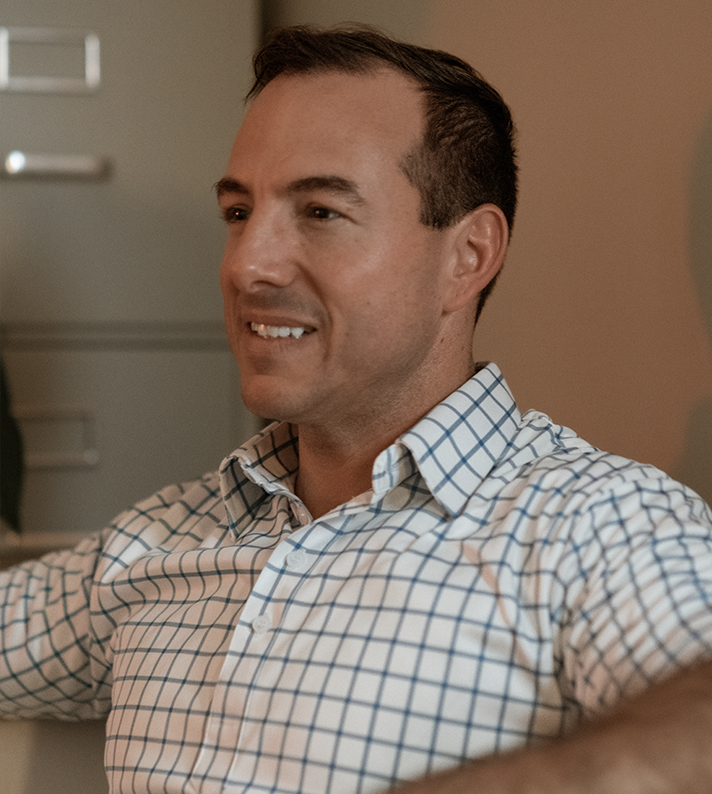Even after trying Couples Counseling, you may find that your only course of action is to seek separation and divorce from your partner, which can come with its own unique set of experiences and emotions. Let us help guide you in this difficult time of change.


Sometimes the solutions to conflicts are right under our noses, we just can’t perceive them. We get so locked into engaging in repetitive, defensive reactivity to attacks from our partner; and thus, we lose the ability to be as objective as we need to be to find an alternative solution. Issues of separation and divorce, like any other personal crises, can actually be a great opportunity to uncover deeper, unconscious issues that we didn’t even realize we had. Methods such as mindfulness and psychodynamic psychotherapy are highly effective in facilitating a separation from subconscious ego defenses on high alert, which preclude any real logical dissection of the true problems at hand. Our therapists will be happy to assist you in this process.

Separation and divorce therapy is a specialized form of therapy that focuses on supporting individuals and families who are going through the challenging process of separation or divorce. This type of therapy provides a safe and supportive space for individuals to explore their emotions, navigate the legal and practical aspects of separation or divorce, and develop strategies for coping and moving forward. The goal of separation and divorce therapy is to help individuals and families adjust to the significant life changes and transitions that accompany the end of a relationship. In this write-up, we will explore the benefits of separation and divorce therapy and how it can support individuals during this difficult time.
1. Emotional Support: Separation and divorce can be emotionally overwhelming. Therapy provides a non-judgmental and empathetic environment for individuals to express their feelings and process their emotions. Therapists can help clients explore and understand their emotions, such as anger, sadness, guilt, and fear, and develop healthy coping mechanisms to manage these emotions effectively.
2. Communication and Co-Parenting: Divorce therapy can assist couples in developing effective communication strategies, particularly when children are involved. Therapists can help parents establish healthy co-parenting relationships, develop parenting plans, and improve communication skills. By improving communication, parents can create a more stable and supportive environment for their children during and after the divorce.
3. Coping with Loss and Change: Divorce often involves a significant sense of loss, as individuals may grieve the end of their relationship, the loss of their identity as a spouse, and the changes in their living arrangements. Therapy helps individuals navigate these feelings of loss and adjust to the changes that come with separation and divorce. Therapists can provide guidance on rebuilding self-esteem, setting new goals, and finding a sense of identity beyond the relationship.
4. Managing Conflict: Divorce can bring about high levels of conflict between former partners. Therapy offers a safe space for individuals to address and resolve conflicts in a constructive manner. Therapists can teach conflict resolution skills, negotiation techniques, and strategies for managing ongoing disputes, helping to reduce animosity and promote a more peaceful separation or divorce process.
5. Legal and Practical Guidance: Separation and divorce involve complex legal and practical matters. Therapists who specialize in divorce therapy can provide information, resources, and referrals to help individuals navigate the legal process and make informed decisions. They can also assist in creating realistic expectations and coping with the challenges that arise during this time.
6. Children’s Well-being: Divorce therapy is particularly beneficial for children who are experiencing the separation of their parents. Therapists can help children understand and express their emotions, navigate changes in their family dynamics, and provide a stable support system during the transition. Children may engage in individual therapy or participate in family therapy sessions to address their unique needs and concerns.
7. Building a Support Network: Separation and divorce therapy can connect individuals with support networks, such as support groups or other individuals going through similar experiences. These networks provide a sense of belonging, validation, and the opportunity to share experiences, coping strategies, and advice.
8. Future Relationship Development: For individuals who wish to pursue future relationships, therapy can help explore patterns, beliefs, and behaviors that may have contributed to the previous relationship’s breakdown. Therapists can support individuals in developing healthy relationship skills and identifying red flags or potential pitfalls to avoid in future partnerships.
In conclusion, separation and divorce therapy provide invaluable support during the challenging process of ending a relationship. By offering emotional support, assisting with communication and co-parenting, helping individuals cope with loss and change, managing conflict, providing legal and practical guidance, supporting children’s well-being, building a support network, and facilitating future relationship development, therapy can significantly benefit individuals and families navigating separation and divorce. It is essential to seek the guidance of qualified professionals specializing in separation and divorce therapy.
If you would like to learn more, please get in touch with us.
Even though your decision may be clear, divorce is still often a painful process, usually accompanied by an unpredictable mixture of difficult and confusing feelings. Divorce counseling and therapy can help you and your partner part ways in a more healthy and productive way, likely saving you additional pain and grief.
Working with a therapist or counselor around a divorce can help you in several ways, one being that you discover that you are not alone in the process, and that what you are experiencing is actually more common than you might have imagined. A mental health professional can also help you find objectivity and alternative perspectives at a time when confusing thoughts and emotions only seem to make your situation worse.
Deciding whether or not to pursue divorce counseling is a personal decision that depends on your individual circumstances and needs. However, there are several common indicators that suggest you might benefit from divorce counseling:
Communication breakdown: If you and your spouse have difficulty communicating effectively, leading to constant conflicts or misunderstandings, divorce counseling can help improve your communication skills and find healthier ways to express your needs and concerns.
Emotional distress: If you are experiencing intense emotions such as anger, sadness, anxiety, or depression related to the divorce process, counseling can provide emotional support and help you navigate these feelings.
Co-parenting challenges: If you have children and anticipate challenges in co-parenting after the divorce, counseling can assist you in developing effective strategies for co-parenting, managing conflicts, and prioritizing the well-being of your children.
Decision-making difficulties: If you are feeling uncertain or conflicted about whether to proceed with the divorce, counseling can help you explore your thoughts and emotions, gain clarity, and make informed decisions about your future.
Adjusting to post-divorce life: If you are struggling with the transition and adjustment to life after divorce, counseling can help you navigate the challenges, develop coping skills, and rebuild your life.
Managing the legal process: If you are experiencing stress or confusion related to the legal aspects of divorce, counseling can provide guidance and support to help you understand your rights, make informed decisions, and manage the process more effectively.
Remember, divorce counseling is not solely for couples seeking to reconcile. It can also be beneficial for individuals who are going through a divorce or have already divorced to address emotional, relational, and practical challenges. It is advisable to consult with a qualified therapist or counselor who specializes in divorce counseling to discuss your specific situation and determine if it would be helpful for you.
(504) 315-2420
Mon - Fri:
8am - 6pm
433 Metairie Road
Suite 202
Metairie, LA 70005